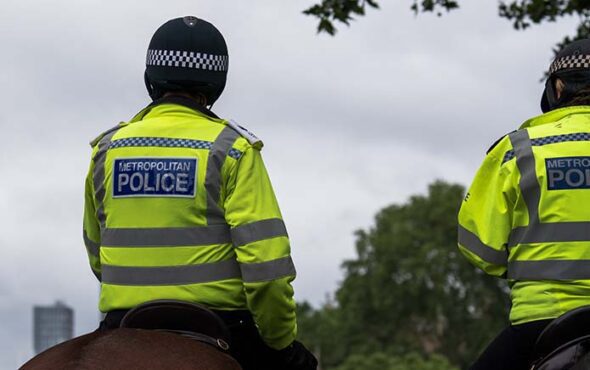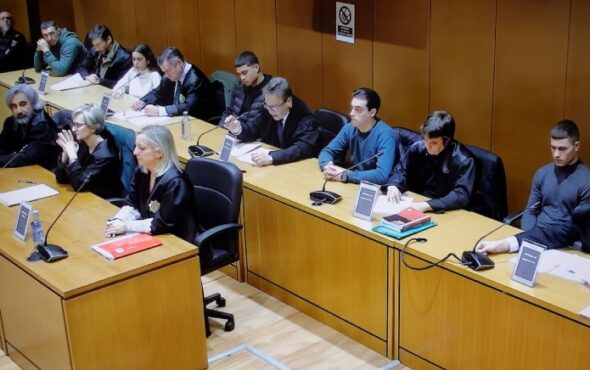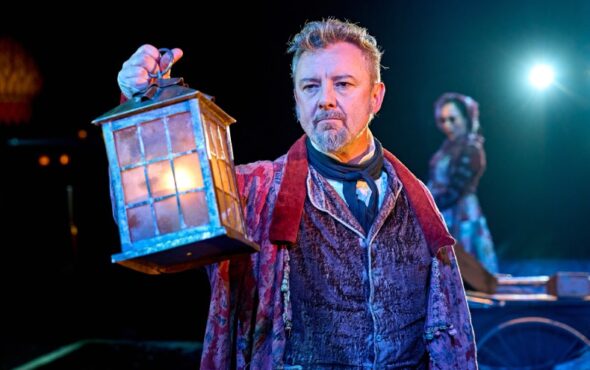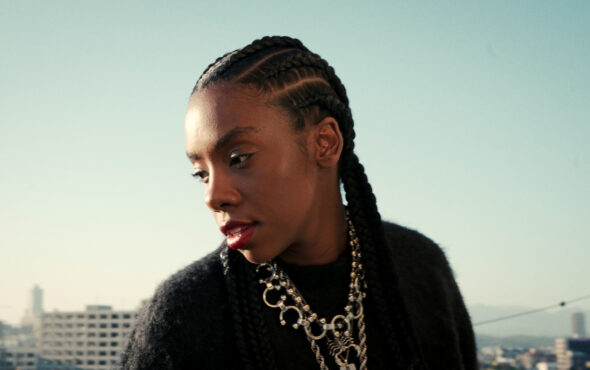
London police are still institutionally racist despite vowing to reform two decades ago, said the city’s first openly gay Black officer, whose story has been nominated for a top film award.
“The Black Cop“, commissioned by The Guardian newspaper, won in the British Short Film category at the British Academy of Film and Television Arts (BAFTA) awards held on 13 March.
A mixture of documentary and drama, the 24-minute film traces the experiences of Gamal ‘G’ Turawa, the Metropolitan Police’s first openly gay Black officer, in the early 1990s as he confronts racism and struggles with his own sexuality.
Both Turawa and the film’s director Cherish Oteka said Britain’s largest force remains – in the words of a landmark report into the botched investigation of the 1993 murder of Black teenager Stephen Lawrence – “institutionally racist”.
“Society at large is still institutionally racist,” said Oteka, adding that the police must do more to tackle the problem.
“There is just this blanket denial of the way that Black communities are treated … I will never feel safe in the hands of the police when this is not being acknowledged,” Oteka said.
London police chief Cressida Dick resigned last month in the wake of a report into racism and sexism within the force.
An investigation by the police watchdog into a central London police station detailed offensive WhatsApp messages about Muslims, Africans, Somalis and LGBTQ+ people, and jokes about making dog food out of African children.
The U.S. murder of George Floyd, an unarmed Black man who died in 2020 after a white police officer knelt on his neck, ignited global protests against racism and calls for reform.
‘WANTED TO BE WHITE’
Turawa spent his early childhood with a white foster family before moving in with his biological father at the age of eight.
Despite early memories of racial abuse from individual police officers, he was determined to join the force.
“I joined because I wanted to be white,” he said in the film.
But he was subjected to abuse – at one point having his face painted with shoe whitener by fellow police officers who said he was “the wrong colour for the job”.
“The police culture (at the time) was almost like, ‘We’ll let you belong to us as long as you behave in the way we want you to behave’,” Turawa said.
A spokesperson for the Met Police said there was no place for discrimination or prejudice in the force, adding “racism, homophobia, sexism, or any type of hate or disrespect, will not be tolerated”.
“We recognise that there is need for real change in the organisation … (and) we are working harder than ever before to improve our culture and professional standards,” the spokesperson said.
Facing racism in the force and struggling with his sexuality, Turawa contemplated suicide at one stage.
“I wrote the suicide note and went to the local train station (with the) intention of jumping in front of a train,” said Turawa, who retired from the police in 2018.
But his subsequent mental breakdown spurred Turawa to accept himself as a Black gay man, and he even appeared on stage at a London Pride event.
“It’s taken me 40 years, but I’m here,” he told the cheering Pride crowd in footage used in the film. “Forty years of hiding and I’ve come out.
“As I stand here, I feel proud to be here, proud to say I’m Black, I’m gay, but more importantly I’m a human being.”
Reporting by Hugo Greenhalgh; Editing by Michael Taylor and Katy Migiro.
GAY TIMES and Openly/Thomson Reuters Foundation are working together to deliver leading LGBTQ+ news to a global audience.



